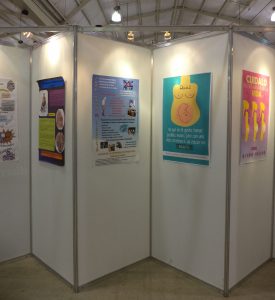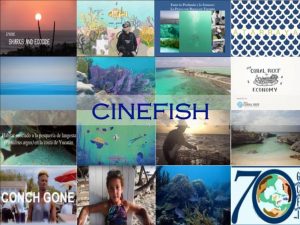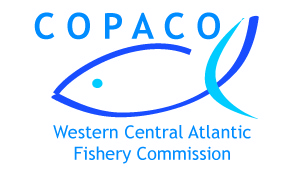Program, Workshops, & Events (Check back here for updates)
CONFERENCE THEMATIC SESSION
The Grouper Fishery of the Gulf of Mexico
The host institutions propose a thematic session on “The Grouper Fishery of the Gulf of Mexico”. Management of the Gulf of Mexico grouper fishery has reached a new level of complexity with social, economic, ecological, and biological considerations playing a large role in the management and sustainability of these important commercial species. The purpose of this session is to facilitate critical thinking by reviewing the issues affecting grouper fisheries management in the Gulf of Mexico, especially off the Yucatan Peninsula, and examining the ways in which management measures interact. We hope that this session will stimulate discussion and expand the array of solutions available by learning from the experiences of experts and stakeholders involved in research and management representing different regions, disciplines, and areas of expertise.
We encourage presentations on:
- Biology and Life history, (e.g. stock structure, age and growth, reproduction, mortality)
- Monitoring (e.g. data needs, improvement on data collection system)
- Stock assessment (e.g. evaluation of methods used to estimate population and management parameters; single species, multi-species management)
- Recreational and commercial fisheries (e.g. status, effort, harvest, fishing grounds)
- Socio-economic aspect of grouper fisheries
- Stakeholders participation (e.g. education, outreach, and awareness)
- Habitat interaction and associated species (e.g. information about associated groupers and snappers; nursery grounds)
- Successful management strategies in the Gulf of Mexico
TECHNICAL SESSIONS
The conference program features multi-disciplinary sessions arranged in part by ecosystem type. The subject areas are consistent with previous GCFI conferences; each session may have a mix of natural and social science, management, and technology related to the ecosystem or fisheries. Papers and posters are solicited in the following areas (other subjects not listed below will also be considered):
- Governance, livelihoods, and organizations
- Reefs and associated ecosystems fisheries
- Shallow and deep reef fishes
- Snapper and grouper fisheries
- Fish spawning aggregations
- Lionfish and other invasive species
- Queen conch, spiny lobster, and other invertebrates
- Marine Protected Areas Science and Management
- Pelagic ecosystem and recreational fisheries
- Continental shelf ecosystem fisheries
- Habitats, climate change, and coastal management
- Essential fish habitats
- Integrated coastal management
- Climate change adaptation
- Sargassum
- Aquaculture
- Marine Pollution and Debris
POSTER SESSION
The poster session/reception will be on the evening of 7 November 2017. Poster space is limited. See the poster specification guidelines. The preferred poster size is 24” x 36” portrait or landscape orientation.
Gender in Fisheries Poster Session (updated 17 August)
The 2nd Gender in Fisheries Special Poster Session will not be outdone by the inaugural session last year! Here is a sneak peak at what we have planned for you:
- Posters covering many areas of gender-related fisheries topics.
- Grand launch of the very first 2018 Mexican Women in Fisheries calendar. This builds on the 4 Leading Ladies in Caribbean Fisheries 2017 Calendar launched last year at the 69th
- Take-aways on the participation of women in GCFI conferences.
Other segments to this special poster session are in the planning phase, so come back here to learn more soon.
For more information please contact Maria Pena and Dalila Aldana [email protected]; [email protected].
SPECIAL SESSIONS
- Marine Animal Movement Ecology in the Wider-Caribbean
This special session will focus on marine animal movement ecology. It will convey to a group of participants interested in the science, technology, management and education the importance of understanding movement as a fundamental feature of understanding aquatic ecosystems in the Wider-Caribbean region. The session will consist of one or two invited presentations to address the state-of-the-art of movement ecology in aquatic animals and discuss the regional needs and directions of this field. Additionally, a series of submitted and accepted contributions will: 1) identify scientific projects that contribute to the field in assessing the ecology of vertebrate and invertebrate’s movement in the ocean, 2) constitute reference studies that utilize different movement assessment methodologies and tracking technologies, 3) describe relevant integration of movement data into ecosystem based management frameworks that can be replicated in other jurisdictions and geographies, and 4) introduce knowledge transfer processes that support educating society in the dynamic aspects of mobile species. The organizers of the session will synthesize the information provided, in the case studies, best practices, and technology presented in a workshop summary that will be published by GCFI.
- Why is this important? Animal movement ecology has broad applicability across taxa, habitat, and spatial scales, and supporting a holistic approach to understanding managing aquatic ecosystems
- What is the target audience? This session will provide science-based knowledge relevant for students, scientists, resource managers, decision-makers, and educators in understanding the concepts of animal movement ecology and how this contributes to integrative marine science in the Wider-Caribbean region.
- Who should benefit most from the session? We expect researchers, managers, and educators to benefit from this session by increasing their understanding of the role movement plays in driving vulnerability and productivity of populations to anthropomorphic stressors, important pathways (e.g., migratory corridors), nodes (e.g., stopovers, aggregations sites), and habitats (e.g., from reefs to water column features) that support their populations. Additionally movement ecology informs our understanding of connectivity between species and the habitats that they need to complete their lifecycles.
The session will consist of presentations (a) by invited guest speakers and (b) selected from proposals submitted by participants.
Contacts:
Jorge Brenner, Ph.D. (primary contact)
The Nature Conservancy
1800 Augusta Dr., Suite 240
(281) 407-3252
[email protected] |
Susan Lowerre-Barbieri, Ph.D.
Florida Fish and Wildlife Commission
100 8th Ave. S.E.
St. Petersburg, Florida
(727) 502-4930 |
- Innovative technologies and tools to support implementation of Ecosystem-Based Management” (EBM) and the “Ecosystem Approach to Fisheries” (EAF) in the CLME+ region
The sustainability of the provision of goods and services from the living marine environment in the Caribbean and North Brazil Shelf Large Marine Ecosystems (further referred to as “the CLME+ region”) has been severely affected over the past decade as a consequence of inadequate fishing practices, habitat degradation and marine pollution. These effects become exacerbated as symptoms of climatic variability and change.
In 2013 countries from the wider Caribbean developed and politically endorsed a region-wide, 10-year Strategic Action Programme: the “CLME+ SAP” (2015-2025) “for the Sustainable Management of shared Living Marine Resources”. The CLME+ SAP promotes region-wide adoption and implementation of “Ecosystem-Based Management” (EBM) and the “Ecosystem Approach to Fisheries” (EAF).
The CLME+ SAP identified weaknesses in marine resources governance, awareness building, data & information management and exchange, monitoring & enforcement capacity, and science-policy interface, to be at the root of environmental degradation in the CLME+ region.
Improved interactive governance, defined as “the whole of interactions among public, civil and private actors taken to solve societal problems and to create societal opportunities” is believed to be key to reverting the ongoing degradation of the marine environment, and its diminishing support for socio-economic development.
Several practical examples exist to date, showing how innovative technologies and tools can be instrumental in fostering and up-scaling such “interactive governance”, and in the promotion and implementation of EBM/EAF. This special session will highlight innovations and technologies that have been applied successfully in the CLME+ region and beyond.
Contributions to the session will include but not limited to: the development and/or adoption of online tools that support decision-making for sustainable choices, either at the policy level (government) or “in the field” (consumers/producers, general public); GPS- and mobile phone-based apps that the public can use to register/report the location of key features or events; technologies and tools to support Monitoring, Control and Surveillance, e.g.: drones and remote sensing technology for monitoring IUU; interactive approaches for scenario modelling and environmental reporting, etc.
The session will consist of presentations (a) by invited guest speakers and (b) selected from proposals submitted by participants. Proposals that address the various dimensions (ecological, social, and economic) of the EBM/EAF approaches are encouraged.
Contacts:
| Andrea Salinas
CLME+ Project UNOPS “Edificio Chamacú, of. 405” “Chambacú, sector Torices” Cartagena Bolívar Colombia 55531
[email protected] |
Patrick Debels
CLME+ Project UNOPS “Edificio Inteligente Chambacu, Oficina 405” Cartagena, Bolivar
Colombia 130001.
[email protected] |
Joint GCFI-SEAC Symposium on Acoustic Technologies to Improve Reef Fish Ecosystem Surveys.
The Gulf and Caribbean Fisheries Institute (GCFI) and SouthEast Acoustic Consortium (SEAC) will hold a special session entitled “Acoustic Technologies to Improve Reef Fish Ecosystem Surveys.” Given the complexity of the life history and habitat of reef fish, the difficulties of sampling reef ecosystems have resulted in data-limited assessments in the Gulf of Mexico and Caribbean regions. Ongoing advances in both active and passive underwater acoustic technologies have brought a variety of tools to scientists for improving surveys and experimental research in reef habitats that can address a variety of operational research objectives. For example, active acoustic instruments (echo sounders) provide measurements to estimate fish abundance, map distributions, delineate spawning aggregations, observe behavior, and characterize community structure. In addition to remote sensing of the biological community, active acoustics can also provide seafloor bathymetry and classification of their habitats. As scientists strive for integrated sampling operations, passive acoustic instruments (hydrophones and acoustic tags) are also used to locate and monitor spawning aggregations, monitor aquatic ecosystem integrity, and investigate the impact of ocean noise on marine resources.
The objective of this special session is to provide the current state-of-the-science, challenges, applications, and recommendations on the best practices for integrating active and passive acoustic technologies into reef fish and ecosystem surveys to provide high quality and timely scientific information for the management of living marine resources. The special session also serves to communicate how integrating acoustic technologies into reliable and sustained survey and observation systems will provide socioeconomic benefits from the scientific gains. Abstracts for this session should submitted by the deadline in the GCFI announcement.
Contacts:
| William L. Michaels, NOAA/NMFS,
Office of Science and Technology, Silver Spring, MD USA
Phone: 301-427-8155
Email: [email protected] |
Christopher Taylor, NOAA/NOS,
National Centers for Coastal Ocean Science, Beaufort, NC USA
Phone: 1-252-838-0833
Email: [email protected] |
WORKSHOPS AT THE 70th GCFI
- GCFI-SEAC Workshop on Best Practices for Acoustic Reef Fish Survey Operations
(Registration deadline is 15 August 2017).
The Gulf and Caribbean Fisheries Institute (GCFI) and SouthEast Acoustic Consortium (SEAC) are planning a one-day workshop entitled “Best Practices for Acoustic Reef Fish Survey Operations” to be held concurrently with the GCFI conference. This workshop will provide an overview of research objectives, operational methods, survey design, and analytical procedures relevant to the acoustic technologies available for conducting reef fish research and survey operations. Ongoing advances in underwater acoustic technologies bring a variety of tools to scientists to conduct surveys and experimental research in reef habitats that can address a variety of management objectives. Therefore, the intent of workshop is to inform scientists, managers, and stakeholders on the state of the science, best practices and applications to consider when investing and implementing in acoustic technologies to optimize reef fish research and survey operations. Case studies will help to identify the challenges, lessons learned and recommendations in building scientific capacity with acoustic technologies to improve data for the sustainability of living marine resources in the Gulf of Mexico and Caribbean regions. Attendance will be limited to the first 25 participants that register; if you would like to register for this workshop please contact:
| William L. Michaels, NOAA/NMFS,
Office of Science and Technology, Silver Spring, MD
Phone: 301-427-8155
Email: [email protected] |
Christopher Taylor, NOAA/NOS,
National Centers for Coastal Ocean Science, Beaufort, NC USA
Phone: 1-252-838-0833
Email: [email protected] |
- GCFI-SEAC Training Workshop for Conducting Acoustic Reef Fish Survey Operations
Registration deadline is August 15th.
Before the GCFI meeting, a two-day training workshop to provide introductory training with acoustic hardware and software systems is scheduled during November 4-5, 2017. The first day will be dedicated to technical training with fishery acoustic systems through basic acoustic theory and hands-on waterside demonstrations, including parameter configurations, calibration, and data acquisition and survey design considerations for quantitative estimates of fish densities and remote observations of other marine organisms. The second day will be conducted in a classroom to receive training with software for the analysis of acoustic data for the evaluation of species composition and quantitative estimates of abundance for stock assessments. This training workshop will be sponsored in partnership by GCFI, NOAA, SEAC, Kongsberg Simrad Fisheries and Echoview, Pty Ltd. Registration will be limited to the first 12 participants, and the deadline for registration will be August 30th. Scholarships up to $2,000 US will be awarded to selected participants who submit a request for consideration with justification of need for the scholarship and how this training will advance ongoing research and survey operations. Please send your request for registration, and statement for scholarship consideration if needed, to the following contacts before August 15, 2017:
Contacts:
| William L. Michaels, NOAA/NMFS,
Office of Science and Technology,
Silver Spring, MD; Phone: 1-301-427-8155
Email: [email protected] |
Christopher Taylor, NOAA/NOS,
National Centers for Coastal Ocean Science,
Beaufort, NC; Phone: 1-252-838-0833
Email: [email protected] |
FISHERS FORUM AND FIELD TRIP
The Fishers Forum comprises a themed session in the main conference ending in the presentation of the Gladding Memorial Award (Monday, 6th) and a field trip especially for fishers (Tuesday, 7th ). The theme for the 70th GCFI is “Collaborating to conserve spawning aggregations”. Fishers and other GCFI participants with experience of fisheries exchanges who are interested in sharing information in the Fishers Forum should contact Will Heyman ([email protected]) or Mitchell Lay ([email protected]) by 30 July 2017. Details of the Forum session and field trip will be in the second GCFI announcement
FIELD TRIP AND TOURS
On the afternoon of Wednesday 8 November choose from among three tours of the City and nearby attractions that have been specially designed with you in mind. A contribution to each tour will be required from each participant. Please check the GCFI website for updates on tours.
 The 70th Annual conference of the Gulf and Caribbean Fisheries Institute will be held in Merida, Mexico, from 6-10 November 2017 at The Hyatt Regency Merida Hotel. The meeting is being hosted by the CINVESTAV, Unidad Merida; Instituto Technologico de Merida y Universidad Autonoma de Yucatan.
The 70th Annual conference of the Gulf and Caribbean Fisheries Institute will be held in Merida, Mexico, from 6-10 November 2017 at The Hyatt Regency Merida Hotel. The meeting is being hosted by the CINVESTAV, Unidad Merida; Instituto Technologico de Merida y Universidad Autonoma de Yucatan. GCFI is pleased to announce that the opening address will be presented by Dr. Brian Luckhurst. Dr. Luckhurst retired several years ago after 27 years as the Senior Fisheries Officer, Department of Environmental Protection, Bermuda Government. He has worked in the wider Caribbean region since 1970 conducting studies in Barbados, Curacao, Bonaire and Venezuela. He made his first dive on a grouper spawning aggregation in 1973. Most of his work has been with coral reef fishes including studies of the reproduction and age and growth of groupers and snappers, with a focus on the dynamics of reef fish spawning aggregations, management and conservation issues in Bermuda, Belize, Puerto Rico, Cayman Islands and the wider Caribbean.
GCFI is pleased to announce that the opening address will be presented by Dr. Brian Luckhurst. Dr. Luckhurst retired several years ago after 27 years as the Senior Fisheries Officer, Department of Environmental Protection, Bermuda Government. He has worked in the wider Caribbean region since 1970 conducting studies in Barbados, Curacao, Bonaire and Venezuela. He made his first dive on a grouper spawning aggregation in 1973. Most of his work has been with coral reef fishes including studies of the reproduction and age and growth of groupers and snappers, with a focus on the dynamics of reef fish spawning aggregations, management and conservation issues in Bermuda, Belize, Puerto Rico, Cayman Islands and the wider Caribbean.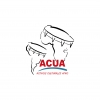

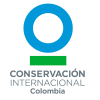

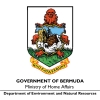




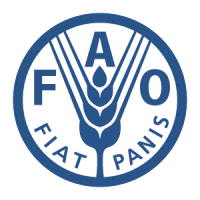
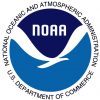

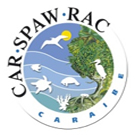


 The meeting venue will be at the Hyatt Regency Merida Hotel. Located in the heart of Merida’s business district, this luxury hotel offers contemporary rooms and suites along with stylish facilities and décor. During your stay, you can visit the city cathedral which was built in the 16th century. Enjoy fascinating museums or take a ride in a horse-drawn carriage down the city`s main avenue, Paseo Montejo.
The meeting venue will be at the Hyatt Regency Merida Hotel. Located in the heart of Merida’s business district, this luxury hotel offers contemporary rooms and suites along with stylish facilities and décor. During your stay, you can visit the city cathedral which was built in the 16th century. Enjoy fascinating museums or take a ride in a horse-drawn carriage down the city`s main avenue, Paseo Montejo.